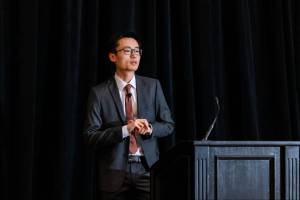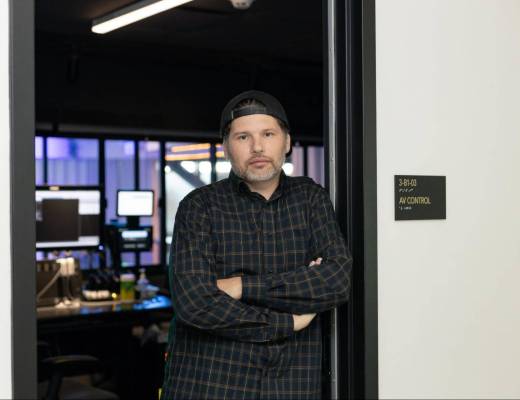
Early Curiosity, Lasting Impact
Many entrepreneurs point to their “first experiment” as the spark that ignited their journey. Wu’s early projects were refreshingly pragmatic. As a teenager, he won Canada’s national innovation award for a solar energy experiment focused on not just efficiency, but also durability. He wanted to understand why so many promising technologies got developed in a lab but never lasted long enough to make a difference. While scores of research fade into oblivion, his stood out for tackling the real-world challenge of longevity, a theme that would carry through his professional career.Stanford and the Making of a Builder
At Stanford, University, Wu earned both a bachelor’s and master’s degree in engineering, graduating with distinction. Unlike many of his peers who narrowed their focus to lab research, Wu was drawn to bioengineering’s practical side: how MRIs, cardiovascular stents, and digital health apps evolved from research papers into everyday tools used by patients and physicians. He was selected for the Accel Leadership Fellowship – one of just 16 entrepreneurs chosen across Stanford annually to dive into entrepreneurship. The fellowship tackled crucial startup challenges, from organizational structure to product market fit, working directly with founders and startups from Accel’s portfolio. Accel is a leading venture capital firm with nearly $10B in assets, having invested in over 300 companies including Facebook, Slack, and Dropbox. This unique mix of technical knowledge and entrepreneurial training set Wu apart from others entering the startup scene.Scaling Public Health at Carbon Health
Wu reached a pivotal point in his career during the COVID-19 pandemic when he joined Carbon Health’s Strategic Initiatives team. At a time when most healthcare systems were overwhelmed, Carbon Health was scaling and launching multiple business lines aimed at tackling the pandemic, ranked the second-fastest growing private company in the US by Inc. Wu’s work there wasn’t incremental; they helped shape the trajectory of the industry. Carbon Health created “care pathways” for various diseases and expanded its primary care services into 14 states nationwide. It launched a clinical research program leveraging its vertical stack to partner with Merck on molnupiravir, one of the first oral COVID antivirals authorized in the US. There was no precedent for the types of projects Wu tackled during the pandemic. Carbon Health administered over 1 million vaccinations, including operations at Dodgers stadium, one of the largest vaccination sites in the country. His contributions were cited by media, and industry experts later cited Carbon Health’s model as a playbook for handling future public health crises. During a pandemic where operational failures tangible lives, Wu’s role at Carbon Health impacted millions of patients and helped establish models for how the US could mobilize healthcare infrastructure in future emergencies.Backing the Next Generation at Rough Draft Ventures
Having witnessed how critical operations was to technology adoption, Wu shifted his focus to helping other founders do the same. He became a Managing Partner at Rough Draft Ventures (RDV), an early-stage venture firm backed by General Catalyst. While many investors come from a strictly finance background, Wu brought the perspective of an operator who had already launched systems at scale. At RDV, he personally evaluated and led over $500,000 in early-stage investments across digital health, fintech, and consumer platforms. His portfolio includes:- Ocular Diagnostics: AI-enabled eye exams for early diagnosis of ADHD and other neurological diseases
- Prende Health: Innovating digital health delivery models for women’s health, later funded by Soma Capital.
- Garage: Consumer marketplace for automotive parts, part of Y Combinator’s 2022 batch.







